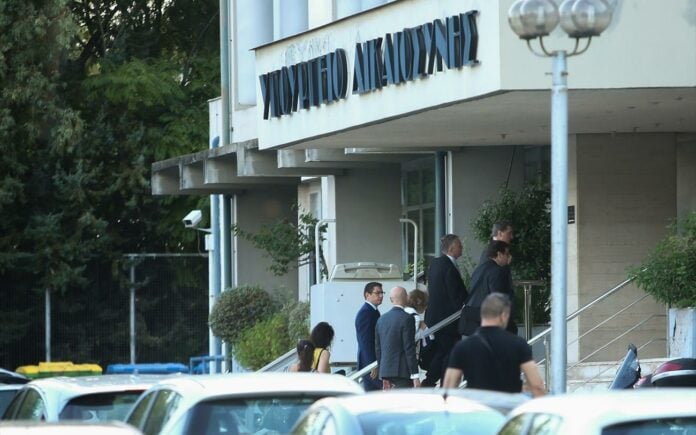By T. Tsiros
[email protected]
Deliberations between the Greek government and representatives of institutional creditors – the one-time “troika” or “quartet” – will continue until at least mid November, with the goal being the completion of the first post-bailout review by that time.
In answer to a question by “N”, high-placed sources left open the possibility of creditors’ experts needing to return to Athens in mid November for a new round of talks – the word used instead of “negotiations” – ahead of a pending report on the course of the Greek economy – also the first in the post-bailout period.
In any case, the latter report will not be ready before the end of November, which means it will be discussed at the Dec. 3 Eurogroup meeting, at the earliest. The highly anticipated report will include details not just on fiscal performance but all economic data collected so far.
By all accounts, the draft 2019 budget that to be submitted by the Greek government next month will include a forecast for a primary budget surplus – for 2018 – of upwards of 4 percent of annual GDP.
As far as the political “hot potato” in the Tsipras government’s “lap”, namely, another round of pension cuts as of January 2019, no developments are expected before mid October, when elections in Bavaria have concluded, given the sensitivity that German federal government ascribes to Greece’s state finances.
Two major developments are pending: the first is the draft 2019 budget, and the second is Athens’ economic forecasts for the coming year.
Determining the height of 2018’s primary budget surplus, and forecasts for next year’s fiscal targets, are essential to the Greek side’s arguments for suspending the politically painful social security reduction.
Beyond fiscal targets, the Greek side is reportedly under continued pressure to reduce “bad loans” held by four systemic banks. The immediate goal is for non-performing loans (NPLs) to ease to 81.5 billion euros by the end of the year. A visit by a SSM delegation to Athens may come in the next few weeks. Another pending issue deals with the Hellenic Financial Stability Fund’s “exit strategy” from ownership of major stakes held in the four systemic banks.














